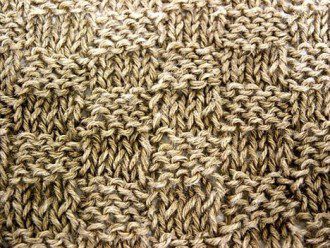

| Online: | |
| Visits: | |
| Stories: |

| Story Views | |
| Now: | |
| Last Hour: | |
| Last 24 Hours: | |
| Total: | |
9 Uses For Hemp You Won’t Learn From Mainstream Media
Follow TIS on Twitter: @Truth_is_Scary & Like TIS of Facebook- facebook.com/TruthisScary

These are the most newsworthy benefits of industrial hemp corporate media won’t teach you about.
Although the negative stigma associated with cannabis has lessened in recent years – especially since THC- and CBD-rich oils were found to be a powerful aid in fighting cancer – it still hasn’t garnered full support from the public.
This is unfortunate, as hemp is one of the most versatile (and longest cultivated) crops on the planet and can be used fora variety of practical and economical uses. According to some sources, the crop is humanity’s answer to creating a cleaner energy source that can replace nuclear power, removing radioactive water from the soil, and eliminating smog from skies in industrialized areas. In addition, nationwide hemp production (which creates more oxygen than standard crops) could eliminate deforestation by converting current paper to hemp paper, which can be recycled up to 8 times. Compare this to wood pulp, which is only recyclable up to 3 times. Finally, hemp seeds are incredibly nutritious and can even serve as a suitable feed for animals and livestock.
Obviously, numerous benefits could be derived from legalizing the crop and allowing it to be cultivated all over the world. However, people have been conditioned to view cannabis negatively; largely a result of big business and political propaganda which began in 1915. Even though the Declaration of Independence was printed on hemp paper and the crop was mandated to be grown in the U.S. in 1619, only in the last hundred years or so have people been demonizing the plant.
Perhaps if people knew the many ways hemp and marijuana can be used, their opinions on legalizing the crop would change. Considering that recreational marijuana consumption results in zero annual deaths, while pharmaceutical drugs are responsible for over 100,000 deaths a year, keeping an open mind is the least people could do.
Following are 9 benefits of hemp you won’t learn about from mainstream media:
1) Fuel
Similar to plants like corn, cannabis can be used to develop biofuels to power automobiles, generators, and pretty much anything else one can imagine. In fact, the University of Connecticut has been studying whether or not the fuel is actually viable, and the results are confirming that it is is.
One of the major problems with current biofuel production, according to Cheat Sheet, is that it often takes more energy to create than what it’s worth. Cannabis may be able to change that. And, thanks to the growing interest in the cultivating the crop, developing a cannabis biofuel industry is speculated to be an easy task.
Professor Richard Parnas of the University of Connecticut says:
“If someone is already growing hemp, they might be able to produce enough fuel to power their whole farm with the oil from the seeds they produce. The fact that a hemp industry already exists means that a hemp biodiesel industry would need little additional investment.”
(For more on this, please see: Why Governments Promote Deadly Nuclear Energy and Ban Beneficial Hemp.)
2) Batteries
Cannabis could help improve the way we store energy, as researchers are discovering that cannabis may assist the process of producing more efficient supercapacitors. Basically, nanosheets can be made by hemp fibers in the same way scientists have been able to use graphene in the past. An added bonus is that hemp is more economical, as it can cost thousands of times less than graphene or similar materials.
As it becomes more socially acceptable to work with hemp, engineers and scientists will have more freedom to develop other innovations with the material.
3) Building Materials
You may not know this, but hemp can be used to create various kinds of building materials. In fact, it’s likely that in the future, houses and even business structures will be comprised of hemp. Not only can hemp be made into insulation, it can also be used to create engineered building products like fiberboard and pressboard. In addition, it can even be used to make ‘hempcrete’, which is a stronger, lighter, and more environmentally friendly version of concrete.
Source: http://truthisscary.com/2016/07/9-uses-for-hemp-you-wont-learn-from-mainstream-media-2/


